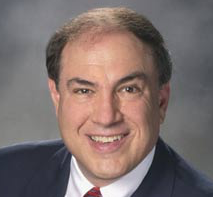Gelman: Dual Employment Status Bars Double Recovery
Wednesday, June 1, 2022 | 0
An employee may have dual employers but ultimately can receive only a single recovery from only one employer for work-related injuries.

Jon L. Gelman
The “exclusivity doctrine,” permitting a complete recovery of damages against an employer, limits an injured worker’s benefit recovery to the compensation system, barring an intentional tort.
In Jorge F. Rodriguez v. Hartz Metro Fee II LL and New York Mutual Trading Inc., a worker was hired by a general staffing agency, New York Mutual Inc., and assigned to work at a New Jersey warehouse in Secaucus loading and unloading container trucks for Mutual Trading Inc. The warehouse was rented in a triple net lease from another company, Hartz Metro Fee II LLC.
The terms of employment were that the staffing agency used the time cards from NYM to invoice for services and paid the employee. Hartz assigned the daily job to the worker, supervised his work and had a right to discharge the employee.
In August 2016, the worker slipped and fell on a metal ramp that descended from the loading dock. The ramp area was poorly lit and slippery, had no handrails and lacked a non-slip surface. Serious injuries occurred, including a fractured right humerus and torn rotator cuff that required surgical intervention.
When an employee appears to have two employers simultaneously, the question arises as to which employer is responsible for workers' compensation benefits and whether the "exclusivity doctrine" can be used to defend against a third-party action. For workers' compensation purposes, an employee may be deemed to have two employers at the same time.
A New Jersey appellate court barred recovery in a negligence action against NYM, reasoned that the injured worker was not a “special employee” and, therefore, the exclusivity doctrine could not be circumvented.
Relying upon the well-established law of a trilogy of cases (Kelly v. Geriatric & Med. Servs. Inc., Walrond v. Cty. of Somerset, Antheunisse v. Tiffany & Co.) a common law action for negligence could not be brought against NYM. The employee may have dual employers and, in this case, are both the staffing agency and NYM.
The court's rationale was that the employee is barred from bringing a workers’ compensation action against the staffing agency and NYM.
The court also declined to permit an intentional tort action against Hartz, as the fact did not rise to be sufficiently flagrant to constitute an intentional wrong. Additionally, the Hartz lease transferred the responsibility for the ramp maintenance to NYM, which then barred a negligence action against Hartz.
The special employee doctrine cannot be invoked to circumvent the prohibition of a duplicate claim.
Claimants' attorney Jon L. Gelman is the author of "New Jersey Workers’ Compensation Law" and co-author of the national treatise "Modern Workers’ Compensation Law." He is based in Wayne, New Jersey. This blog post is republished with permission.



Comments